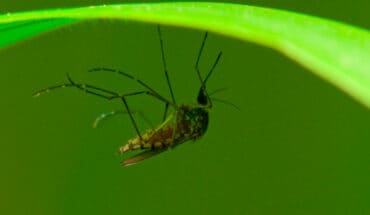New bid to ‘outflank’ antimicrobial resistance: A major new project will investigate the defence mechanisms of bacterial cells, to help stop the spread of drug-resistant genes.
Resistance to antibiotics (known as antimicrobial resistance) is a growing problem, identified by the World Health Organisation as a top ten threat facing humanity.
The new project, led by Professor Edze Westra at the University of Exeter, will use a wide range of methods to work out how bacterial defence systems shape the evolution of “mobile genetic elements” (MGEs), which play a key role in spreading antimicrobial resistance.
MGEs are segments of DNA that can move from one bacterium to another and can change key traits of bacteria, including antibiotic resistance and virulence (the severity of illness they can cause).
The £4.6m, five-year programme has won a grant from the Biotechnology and Biological Sciences Research Council (BBSRC) under the strategic longer and larger grants (sLoLa) scheme.
The project team includes researchers from the universities of Exeter, Durham, Manchester, Bath, Bristol, Liverpool and St Andrews.
“To guide the development of new strategies to outflank the spread of antimicrobial resistance, it is critical to invest in a deeper understanding of bacteria-MGE interactions,” said Professor Westra, of the Environment and Sustainability Institute on Exeter’s Penryn Campus in Cornwall.
“Our ambitious goal is to tease apart how complex, multi-layered, bacterial immune systems operate at the level of individual molecules, cells, populations and microbial communities.
“This will require expertise in bioinformatics, molecular microbiology, biochemistry, mathematical modelling, microscopy and experimental evolution techniques – so we have assembled a team of world-leading UK researchers covering all these fields.”
Professor Westra added: “Our research programme builds on the very recent discovery of a large diversity of defence systems that frequently co-exist in the same cell, where they cluster in ‘defence islands’.
“Our results will be of key strategic importance for UK healthcare, industry and biotech.”
The project will combine genomics, modelling and experimental analyses of Pseudomonas aeruginosa bacteria to determine which defences occur together, which interact synergistically, what causes synergy, how the activation of different defences is orchestrated and how they shape bacteria-MGE dynamics.
Data from P. aeruginosa will be generalised through genomics analyses across all bacterial taxa and selected experiments with additional taxa to identify general rules of life.
This project will apply interdisciplinary thinking and experimental capacity to lay the foundations for an entirely novel area in the field of bacteria-MGE interactions.
The aim is to uncover defence systems that could be exploited for engineering biology, especially using phages (viruses that infect bacteria).
Professor Kate Baker, from the University of Liverpool, said: “Unpicking the complex interactions among mobile genetic elements, phages, and bacterial defence systems in natural populations is key to understanding antimicrobial resistance dynamics.”
Professor Tim Blower, from Durham University, added: “Phages have brought us revolutionary tools for biotechnology.
“Delving further into the layered interactions of phages and bacteria is a fantastic opportunity for UK science to lead the way exploring new key areas of biology.
“We will also be working to engage with the public and share our findings as new discoveries arise.”
The project is called: “Multi-layered bacterial genome defences: linking molecular mechanisms to bacteria-MGE conflicts in single cells, populations, and communities.”
- Christmas Is for All - 19th December 2025
- Intense influenza season driven by new strain - 19th December 2025
- KFSHRC Develops Novel Technique to Treat Inner Ear Disorders - 19th December 2025







